As pressure mounts on Ukraine to accept a ceasefire that would lock in Russian occupation, one question haunts those who have given everything: Did their loved ones die for nothing?
Three years into Russia’s full-scale invasion, with over 45,000 casualties and counting, calls for Ukraine to compromise grow louder — pushed in part by US President Donald Trump, whose promise to end the war “within 24 hours” has spiraled out into a diplomatic push to force Ukraine into peace deal on Kremlin’s terms.
Yet, for those who have buried their parents, spouses, and children, a rushed peace isn’t an end to the war — it’s a betrayal. Their voices tell a different story: one where “peace at any cost” would erase their loved ones’ sacrifices, turning their deaths into nothing more than a footnote in history — and paving the way to the next, even deadlier invasion.
“I still catch myself thinking ‘I should call dad’ before remembering I can’t anymore”
My father always had a Plan B, always thought everything through in advance,” says Anhelina Kulyk, a 24-year-old professional dancer from Mykolaiv who now helps refugees in Moldova. A year and a half after his death in the Zaporizhzhia direction, she and her relatives still can’t process the void he left behind.
Before Russia’s full-scale invasion, Andrii was a delivery driver, distributing food products across Mykolaiv Oblast in the country’s south. He was known for his quick wit and intelligence, though he rarely spoke about the looming war, preferring to deflect with jokes.
However, when it came to taking it seriously, he was crystal clear:
“This is my home, this is my land. If Russians come here, I’ll kill them and bury them in the backyard garden, as fertilizer.”
In his mind, Anhelina recalls, defending Ukraine was “what needs to be done.”
When the full-scale invasion exploded, Andrii secured his wife’s passage abroad but stayed. He continued his civilian work until his best friend’s draft notice arrived. The next day, when his own summons came, he left without hesitation. By July 2023, at the age of 44, he was dead.
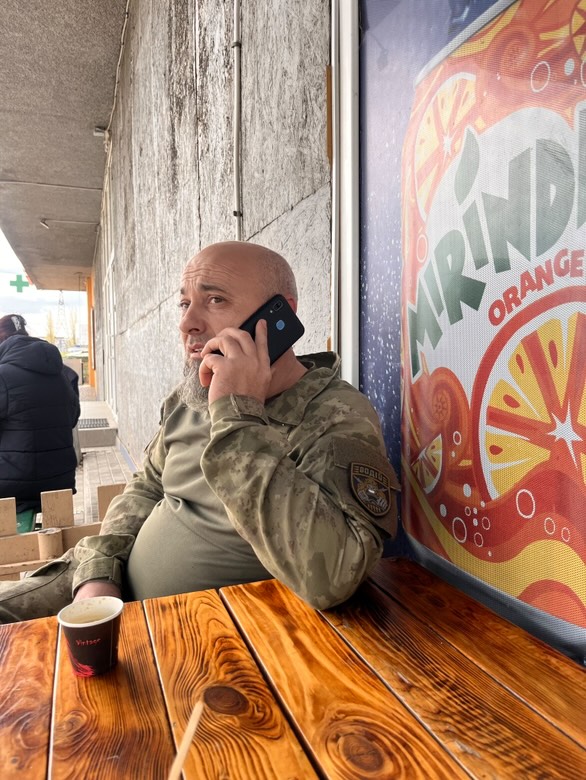
Now, as talk of a “freeze” and “negotiations” with Russia surfaces, Anhelina stands torn between grief: daughter of a man who gave everything for Ukraine, and a young woman who sees the devastating human cost her country bears daily.
While she previously supported reclaiming all Ukrainian territory without compromise, now the woman finds herself torn, wondering how many more must die for this cause. Yet, despite the weight of grief, the idea of forced concessions — leaving Russia’s invasion unpunished — is even more terrifying.
“As soon as any so-called ‘peace’ is reached, both Russia and Ukraine will start preparing for the next round. My children, or even my generation, will have to fight again,” she says. “The very thought of negotiating with Russia makes her blood boil.”
Anhelina admits that the war has sharpened her understanding of history. She’s taken up her father’s struggle through what she calls intense “self-decolonization,” realizing that Russia’s commitment to destroying Ukrainian identity will never end unless it’s stopped.
“It terrifies me that my peers, my younger sister, my future children — we could all have to fight this battle again, paying with our lives for what this generation couldn’t finish,” she says.
Despite the darkness of war, Anhelina sees Ukraine as an incredibly promising nation, showing remarkable growth across various industries even amid the invasion. As she helps displaced Ukrainians rebuild their lives in Chișinău and learns to live with her own loss, the wowan knows one thing for sure: her fellow Ukrainians won’t accept a frozen conflict, no matter the cost.
“This war has made one thing clear: those of us who’ve lost someone won’t accept a frozen conflict. If that happens, the internal tension will be worse than what we’re experiencing now.”
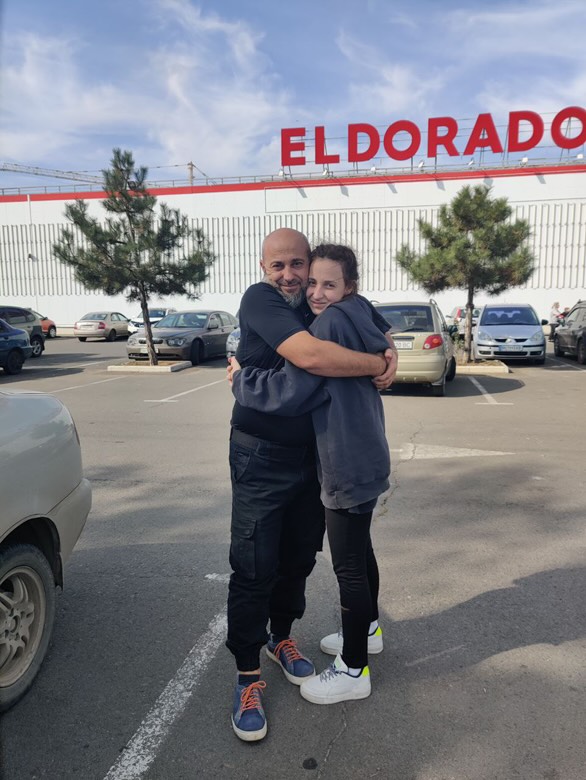
“His death filled me with rage”
“We called him Mortal — like the character from Mortal Kombat — because of how fiercely he fought,” says Artem Lahutenko, recalling his childhood friend Serhii Levin.
However, in Artem’s memories, Serhii was first the older kid from their yard in Zaporizhzhia, southeast Ukraine, who taught the neighborhood children to play chess, ride bicycles, and love reading books. Five to seven years older than the rest, he became like an older brother to many.
Though they cherished mutual childhood memories, their 25-year friendship cracked when the war broke out. At 41, Serhii seemed indifferent to everything Ukrainian and teased Artem for switching from Russian to Ukrainian in their predominantly Russian-speaking city.
While Artem cut Russian out of his life completely, Serhii continued speaking it, seemingly unfazed that it was the language of the aggressor. They argued often, and as the full-scale invasion raged on, they barely spoke.
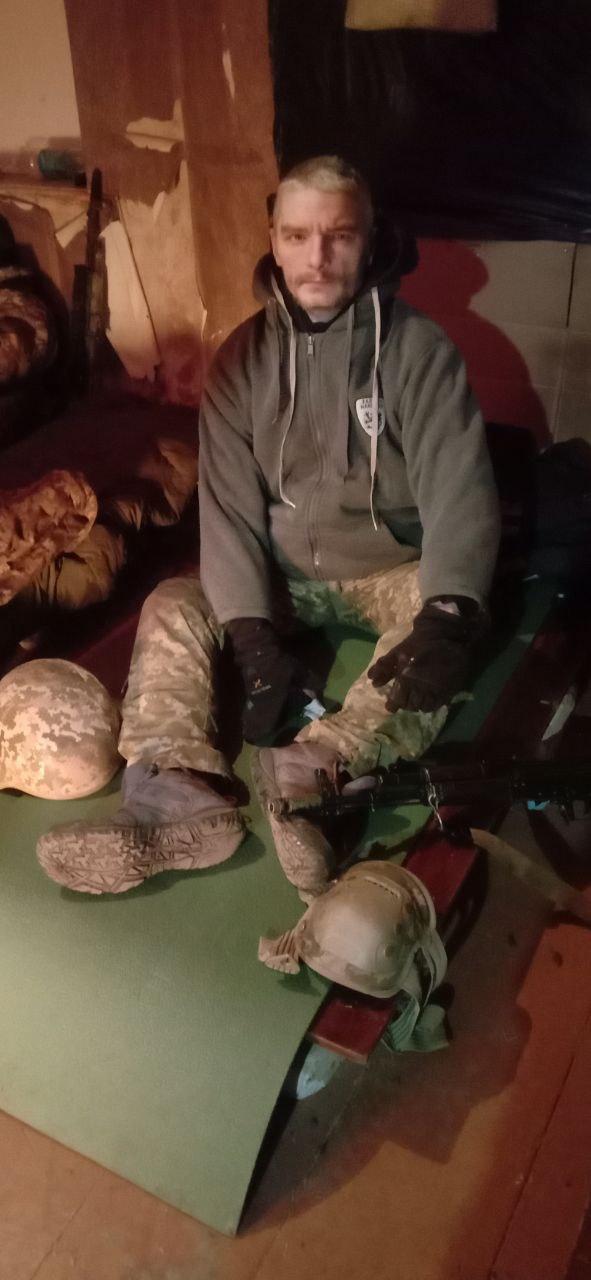
Then, in November 2024, Artem received an unexpected message on Telegram: Serhii needed help finding shelter for his dog. The reason was simple: the police and the draft officers had stopped him on the street, handed him a draft notice, and sent him straight to a military training ground after a rushed medical exam.
Despite their previous differences, Artem took his duty seriously. After training, Serhii’s unit was deployed near Pokrovsk, Donetsk Oblast, where he went on several combat missions. By mid-December, communication between two stopped.
A month later, Serhii’s brother confirmed the worst: Russians had shelled their position. Serhii, a regular soldier in an assault brigade, was gone.
Despite their past grievances, Serhii’s death filled Artem with rage. For him, the death of Serhii, who once seemed indifferent to Ukraine’s cause but died defending it, proves that personal politics mean nothing in the face of Russian aggression.
“I had been angry at Serhii for his stance on Ukraine, but there’s a world of difference between arguing with someone and watching them be taken from your life, destroyed by Russians who decided they had the right to kill your people,” he says.
Artem explains that the Russian missiles don’t discriminate based on language or allegiance— they just kill. He points to Donbas, the most pro-Russian region of Ukraine, noting that since 2014, Russians have essentially wiped it off the map.
Now, as discussions swirl about freezing the war or pushing Ukraine toward what would essentially be capitulation, Artem’s anger deepens.
“I see Western society feeding itself illusions,” he says. “They fear recognizing an obvious truth: this war won’t end with a peace deal. I understand Europeans and Americans — once, we Ukrainians thought the same way.”
Artem points to Russia’s relentless expansion since the USSR collapse: first Chechnya in the 1990s, then Georgia in the 2000s, and the east of Ukraine in 2014 – each perceived in the West as the last episode instead of admitting the escalating pattern.
“No one expected Ukraine to be next, but we were. Every decade, Russia takes another country. Now Europe thinks it won’t be next— but it will. Definitely,” he says.
“We’ll make difficult decisions to prevent their deaths from being meaningless”
“They came to our home with weapons. They killed our defenseless people, our children. They tortured our citizens,” says Nataliia Haponiuk from Dnipro, whose anger rises whenever she hears that Ukraine should trade its sacrifices for quick peace.
Nataliia bears the weight of war’s toll with painful clarity. Before Russia’s invasion, her 39-year-old husband Volodymyr had crafted a life centered on building, not destroying. A skilled design engineer, he ran his own business producing homemade meat products and channeled his creativity into automobile construction.
Like millions of Ukrainians, he had dreams that never included a trench on the frontline. However, when the full-scale invasion broke out, the man’s convictions left him no choice but to leave civilian life behind and join the army.
“When there’s a threat to your family, what does a real man do?” he would say. “He protects them.”
Throughout his service, Volodymyr kept a keychain with photos of their daughter close by. In the darkest, most disorienting moments of war, when everything felt uncertain, her picture was his anchor. It gave him the strength to keep going, knowing she was waiting for him and that he had to do whatever it took to make it back.
Volodymyr’s final battle came in February 2023, near the village of Vremivka in Donetsk Oblast. He and four comrades held their position against overwhelming Russian forces.
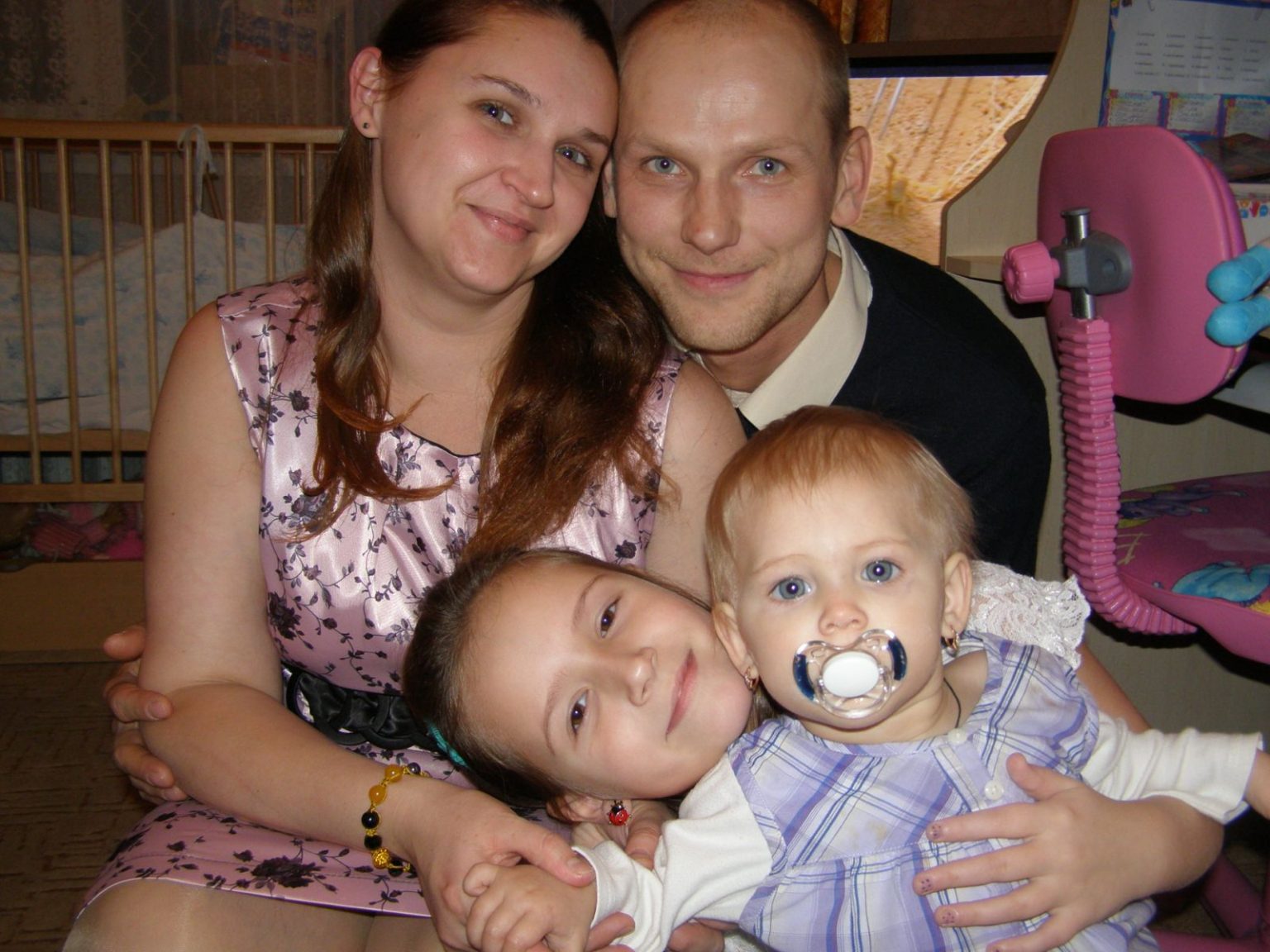
After tank fire and close combat, the Russians eventually retreated — but detonated the position as they withdrew, causing ammunition to explode. For 14 months, Volodymyr was listed as missing until DNA testing confirmed what his family had feared the most.
Now, their daughter is clinging to memories, repeatedly asking when they can visit her father’s grave — though it remains empty, as his body couldn’t be retrieved from the heavily shelled territory.
“It breaks my heart twice over watching my daughter look at happy families where fathers advice, help, and protect their children, while she sees only a constantly exhausted mother running everywhere, trying to handle everything alone,” Nataliia says.
After her husband’s death, Nataliia has been living for two, handling everything alone and struggling to maintain normalcy for their daughter — an invisible burden shared by thousands of war widows across Ukraine.
“Yes, we’re exhausted,” she acknowledges. “We want children to stop hiding in basements, to go to work without worrying about kids home alone. But people who lost someone won’t let these sacrifices be in vain.”
However, despite the devastating cost of losing her partner, the talk of peace negotiations benefiting the aggressor, pushed by the Trump administration, fills the woman with anger.
“Many people died so our children could grow up in a free Ukraine – not under Russian control, but independent,” she explains. “That’s why accepting any ‘peace’ on Russian terms feels impossible.”
Like many Ukrainian families touched by loss, Nataliia believes that if leadership agrees to “peace” with Russia without security guarantees, it will spark uprisings. She’s certain the military, alongside the women and men who’ve lost sons and brothers, will rise up if Russia and the West strike a deal that betrays everything their loved ones fought to protect.
“We protected our homes, our lives, our loved ones,” she says. “Now they talk about negotiations – as if both sides could just agree and get what they want: territories they don’t really need, minerals they apparently do.”
Despite struggling with her loss, Nataliia opposes freezing the conflict without Russia’s defeat that an increasing number of voices in the West promote as the way to stop the bloodshed in Ukraine.
“Our loved ones died so we could live in genuine peace, not whatever this ‘frozen conflict’ would be,” Nataliia shares.
While the woman believes restoring Ukraine’s 1991 borders may be unrealistic in the short term, the ongoing atrocities in occupied territories make surrender unthinkable, driving her to insist that the country must continue fighting to reclaim recently occupied areas like Kherson, Zaporizhzhia, and parts of Donetsk Oblasts.
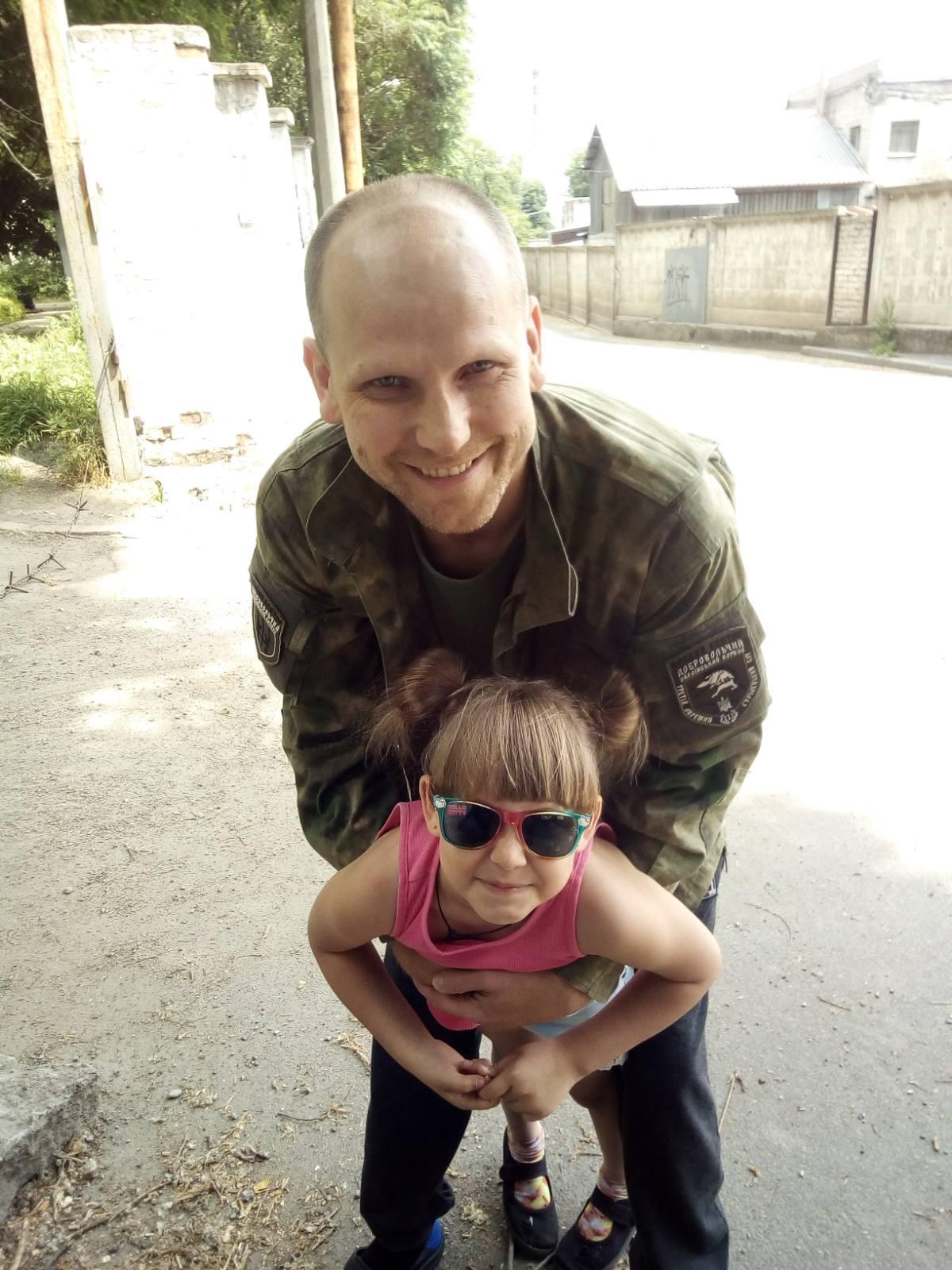
This brutal reality means Ukrainians face an impossible choice: fight and risk death, or surrender and face certain destruction. The necessity of resistance doesn’t make the loss any easier to bear, especially when critics suggest Ukrainians should simply stop fighting to save lives.
“If we want to defend our rights, we have no choice but to fight,” she says. “Russian occupiers don’t ask whether you welcomed them. They don’t care if you’re a child, elderly, or even a dog – they kill and torture indiscriminately.”
“Their sacrifice cannot be in vain”
“I remember the Minsk agreements when Ukraine withdrew while Russia kept its positions. You can’t negotiate with Russia unless there’s real pressure,” says volunteer Olena Kukla, who lost two of her dearest people to the Russian invasion.
In 2014, when Russia first brought weapons into Ukraine, Olena’s husband, Volodymyr, answered the call to defend their homeland. He fought in some of the fiercest battles of the early invasion — the Donetsk airport and the Avdiivka industrial zone.
Olena, too, dove into the struggle, volunteering from day one, but eventually, she felt compelled to enlist to be closer to him and contribute directly to Ukraine’s defense.
However, the time was cruelly short. Just three months after Olena joined the army, Volodymyr, a man who lived for his service and his comrades, suddenly fell ill and died during urgent surgery — a casualty of injuries sustained earlier in the Donetsk airport.
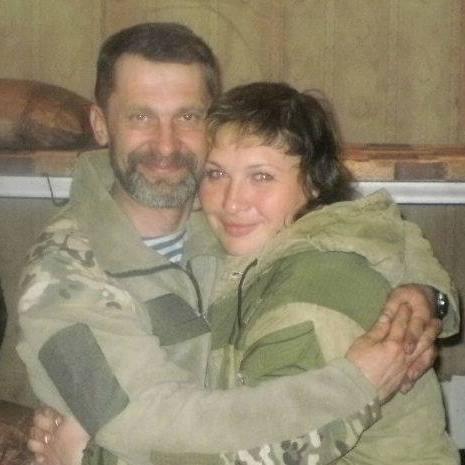
For their son, Yaroslav, losing his father was a call to action. At just 17, he vowed to follow in his father’s footsteps. True to his word, in 2017, he enlisted as a reconnaissance soldier, serving in the same battalion as his mother.
For four years, Yaroslav fought on the front lines until Olena convinced him to discharge and rest. At that time, aged just 22, he had spent his entire adulthood at war without experiencing civilian life.
As military professionals, they could feel the storm approaching. Just a month before Russia’s full-scale invasion, Yaroslav had already packed his military backpack, anticipating what was coming.
When Putin launched the attack on 24 February, Yaroslav wasted no time — hours after the announcement, he rushed to the draft office, and was immediately deployed to defend the capital.
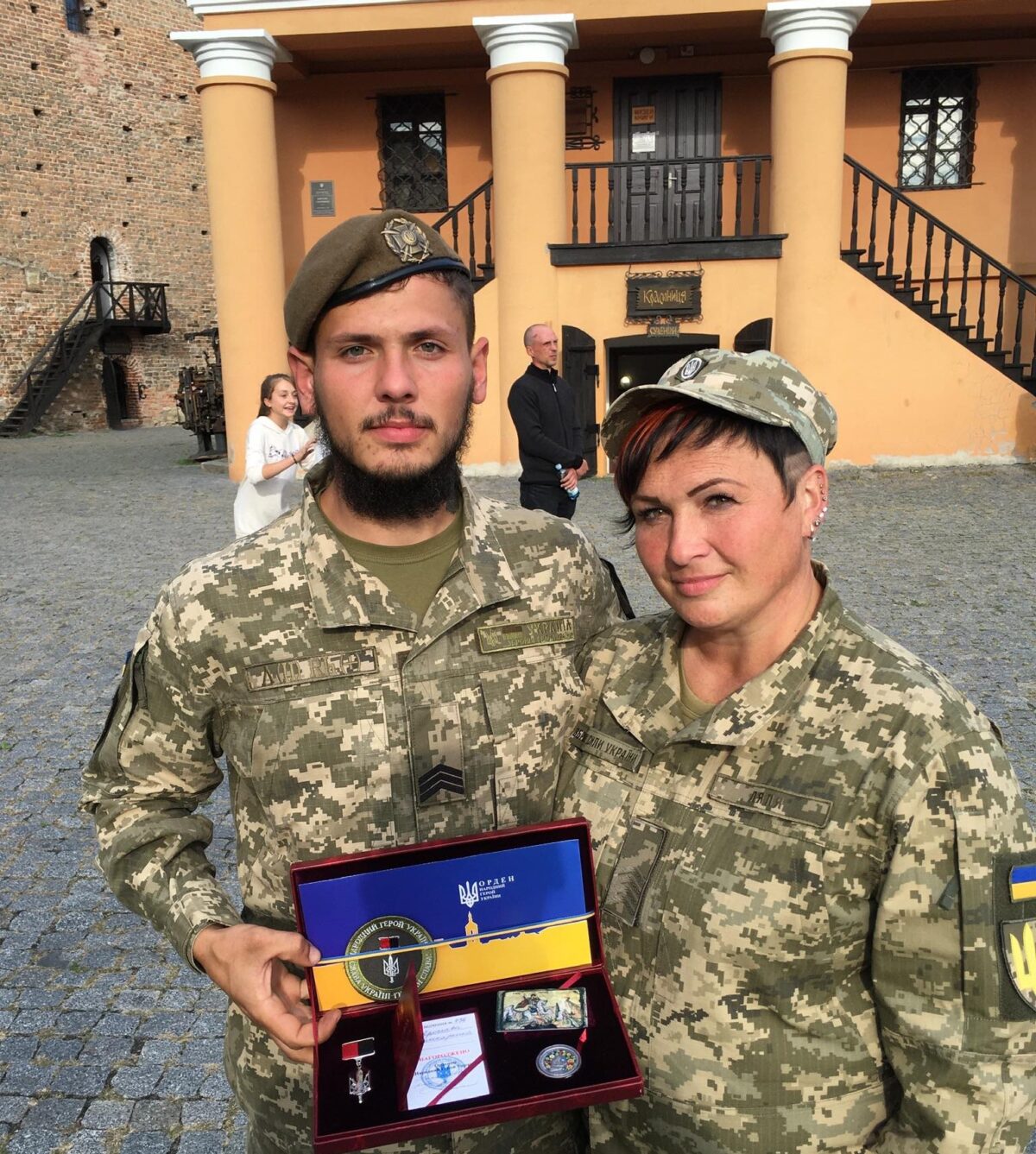
For him, the battle for Kyiv was just the beginning. He fought fiercely to liberate its suburbs, which had been occupied in the early days of the war, bearing the first testimony to the Russian war crimes. His dedication held strong until he was killed on 19 April 2022.
Today, Olena channels her grief into action as the head of a volunteer organization in Bohuslav, Kyiv Oblast. Founded in 2022 and named in honor of her son, the volunteer center supports soldiers still fighting on the frontlines.
With 11 years of firsthand experience as both a soldier and a volunteer, Olena strongly reacts to current calls for negotiations with Russia or freezing the war.
“This ‘peace’ people are pushing for would betray everyone who’s fought for Ukraine — both those in occupied areas and those who have been liberated,” she says.
Looking forward, Olena draws inspiration from Israel’s model of strengthening its military, investing in defense, and training every citizen — including women — for mobilization. However, until that happens, she fears Ukraine’s resolve to fight may waver due to diminishing international support.
“When the world thought we wouldn’t last more than three days in 2022, we proved them wrong. But we still need the world’s support to continue fighting,” Olena insists.
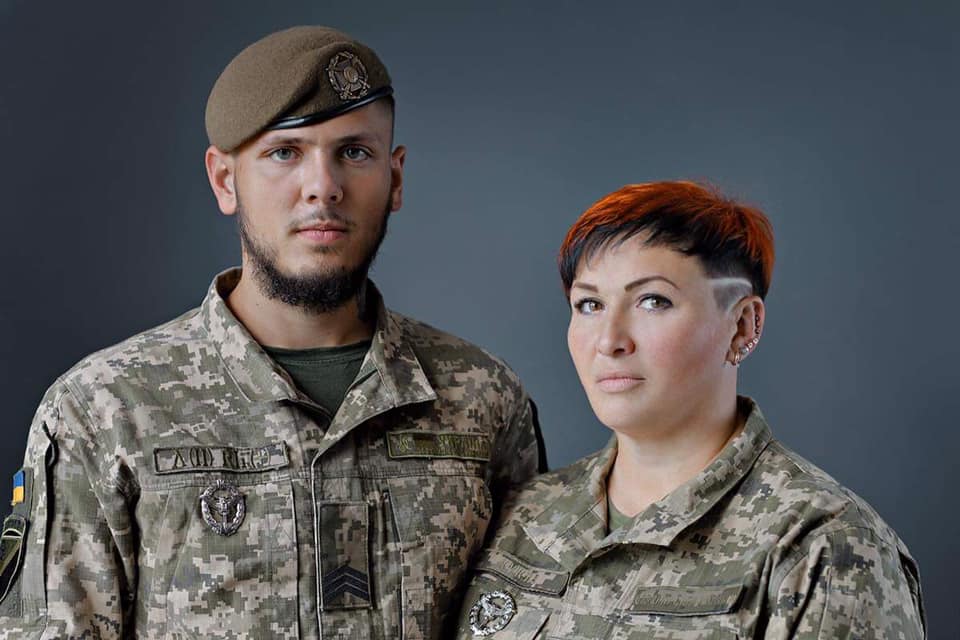
For people like Olena who have lost their dearest ones to the Russian invasion, Ukraine’s fight transcends mere survival — it has become a life-long obligation to defend those who can no longer fight for themselves.
The sacrifices made by so many have turned this war into something deeply personal, with each day of resistance fueled by the memory of those lost.
“I’ve paid the highest price – losing both my husband and my son,” she says. “Their sacrifice, and the sacrifice of thousands of others, cannot be in vain.”



